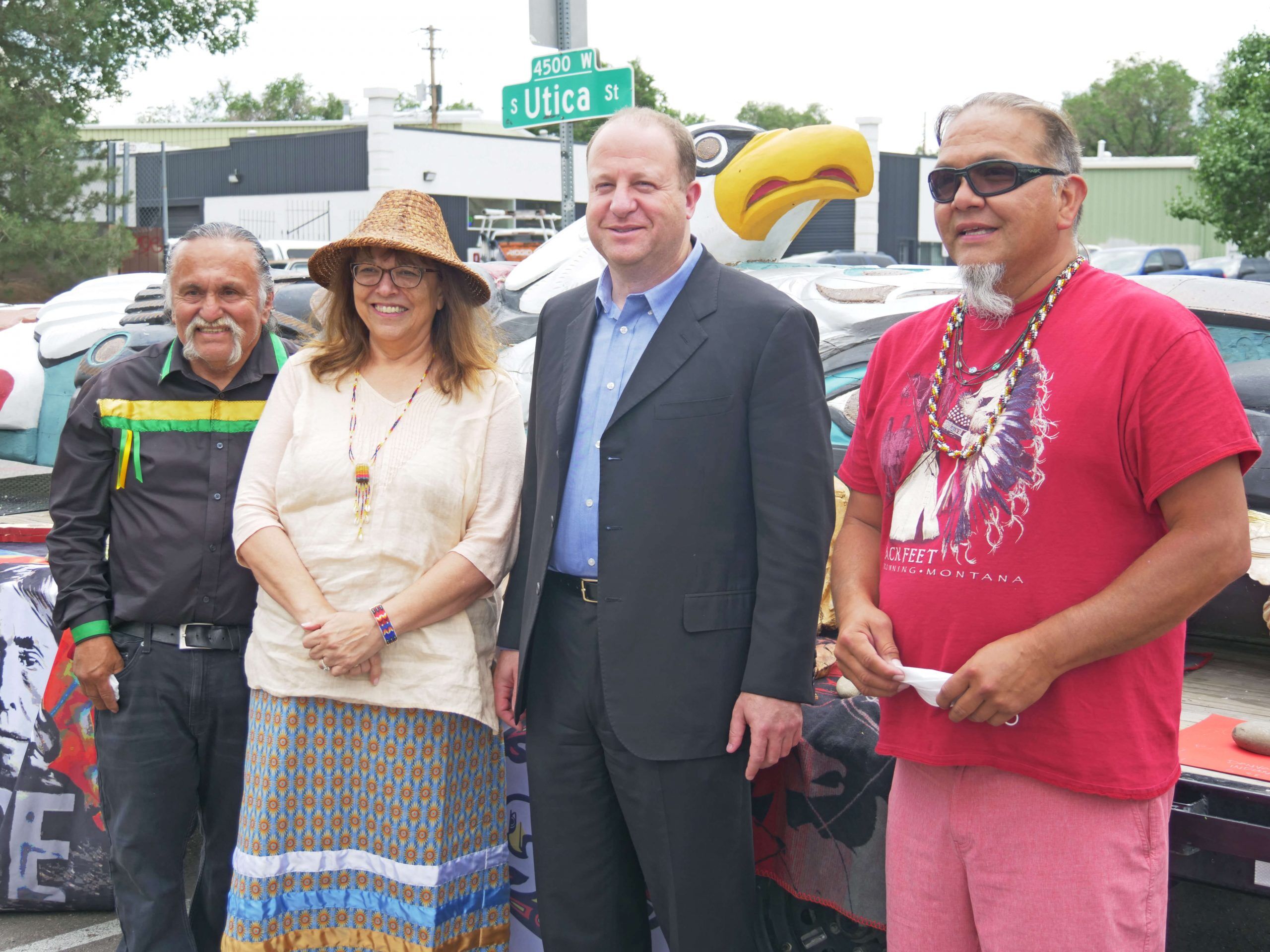Cheryl Crazy Bull poses with Colorado Governor Polis (center) and Lummi artists with their totem pole.
On Monday, June 28, I was privileged to be a witness. I wanted to share what I saw and heard.
For 10 years, I enjoyed living among the Lummi and other Coast Salish people in the Pacific Northwest, during which time I served them as President of Northwest Indian College on the Lummi Nation.
As Tribal Nations, we all have our distinct cultural practices, and the unique practices of the Coast Salish people include witnessing. Individuals are selected to bear witness for a variety of reasons, including status in the community, family relationships, and the ability to share the news in many places. I was reminded of this when I learned that my good friends Jewell James and Fred Lane, both Lummi citizens, would be bringing a totem pole made by the House of Tears carvers at Lummi for the Biden administration through Denver as part of their pre-journey trip to Washington, D.C., which begins in mid-July. I am happy I was able to visit with them, to meet the others travelling with them, and to pray with the pole, because it carries the vision and dreams of so many Indigenous people and our allies to the Biden administration in the hope that they will act in ways that fulfill our dreams. That visit reminded me of the value of witnessing and of sharing what I saw.
That day the Governor of Colorado, Jared Polis, signed three pieces of legislation at the Denver Indian Center in full view of many people from the Denver Indian community and in the presence of key elected officials and government officials. He was joined by representatives of the Southern Ute Nation, Ute Mountain Ute Tribe, and the Northern Arapaho of Wyoming as well the Lt. Governor Dianne Primavera, who oversees the Colorado Commission on Indian Affairs.
One bill allocates $10M to each of the Colorado Ute Tribes to support their broadband access; another grants in-state tuition at Colorado colleges and universities to citizens of the 48 Tribes who have or had homeland ties to the State of Colorado; and the third piece of legislation bans Native mascots in Colorado schools.
It was the ban on mascots that touches my heart the most. I was glad that I could witness the presence of the young Native people who attended the signing ceremony. It is way past time to eradicate Native mascots, and actions taken at the state level are critical to shifting public policy. Even more important, eradicating mascots is an important critical step in educating the public about the harm that mascots do.
As an educator, I am knowledgeable about the research that documents the emotional, mental, and spiritual harm that mascots cause, especially with children and youth. As a mother and grandmother, I am acutely aware of the fragility of confidence and self-esteem in all people, especially young people. Our Native children and youth, and indeed, all young people, deserve to see themselves in positive ways. You can learn more about the Red Road to D.C. Totem Pole Journey at www.lhaqtemish.org. I urge you to encourage increased access to state higher education institutions for American Indian and Alaska Native and other Indigenous students by providing tuition support, such as in-state tuition or free tuition. Most importantly, I urge you to educate yourselves about the ways that representation through images impacts the self-esteem, confidence, and identity of Native children, and to join the American Indian College Fund and indigenous groups nationwide to continue to call for a ban on mascots.

